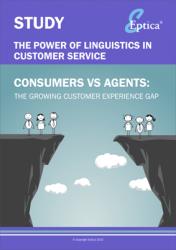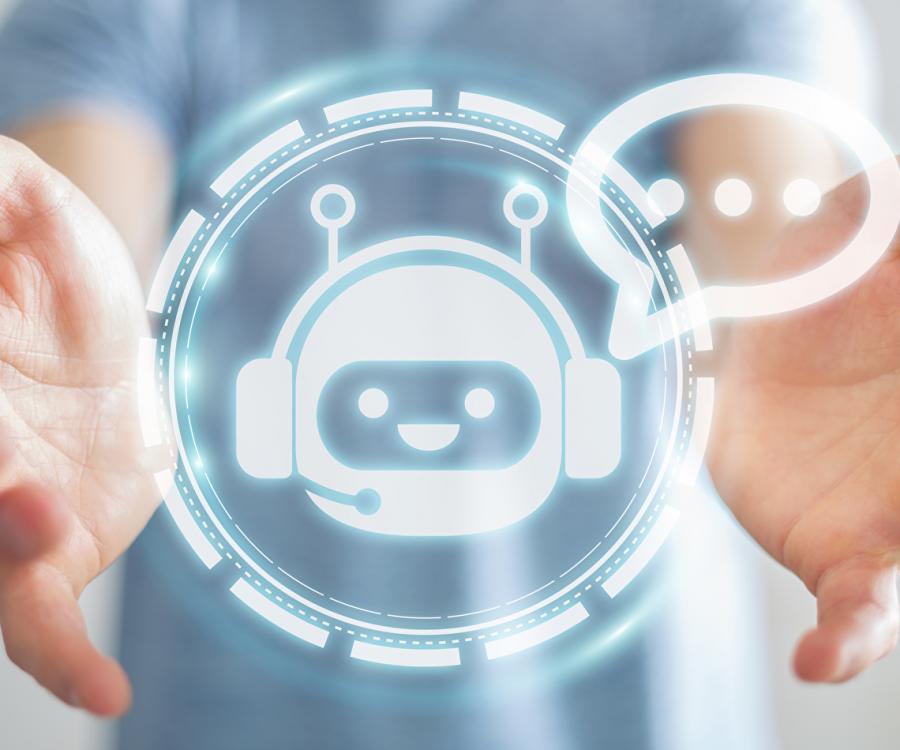Not being understood and companies that fail to acknowledge their feelings are the biggest consumer frustrations when dealing with brands through digital channels.
78% of UK consumers surveyed in Eptica research ranked getting a response that either partially, or completely, failed to answer their question in their top two biggest frustrations. 31% said that failure to acknowledge upset or anger was a major issue. The research found that the consequences of this consumer frustration are stark – 82% said they always or often switched supplier if they failed to correct their mistakes.
The Eptica Power of Linguistics in Customer Service Study, which surveyed both consumers and contact centre agents, highlighted a growing understanding gap between the two sides when it came to customer experience. 61% of agents found it hard to understand the language and vocabulary that consumers used, and nearly a third (31%) found it hard to recognise anger or upset in written communications.
Agents empathise with consumers, with 71% believing that customers number one frustration was receiving inadequate or partial answers. 85% thought consumers would be likely to switch if they received poor service. However, they feel powerless to help. Part of the issue is that text-based communications, such as emails and tweets are fundamentally more difficult to understand than face to face or voice-based channels as they lack context or visual/verbal clues. This adds to the challenge of dealing with an expanding number of digital enquiries from increasingly impatient consumers.
Consumers overwhelmingly now use email to contact brands, with 87% of consumers selecting it as their primary communication channel, ahead of Facebook (6%), chat (4%) and Twitter (3%).
To help bridge the understanding gap, agents want better tools and technology to help them do their job and become more productive. Over half (51%) listed technology that analyses questions and suggests relevant information as their 1st or 2nd choice, with the ability to prioritise answers based on tone (anger, sadness, happiness) specified as a priority by 50% of agents. 34% wanted better, centralised knowledgebases that provided faster access to more consistent answers, and 55% asked for a single view of the entire customer history.
“In an attempt to increase loyalty brands are focusing on building stronger relationships and engaging with their customers,” said Julian Sammells, Sales Director UK & Ireland, Eptica. “However our research shows that their efforts are being seriously undermined by a breakdown in understanding between consumers and frontline customer service staff. A failure to comprehend what customers are asking, and how they feel, is causing frustrated consumers to switch suppliers, hitting revenues and brand reputation.”
As well as the impact of customer churn on revenues, the understanding gap also adds to costs for organisations. Failing to resolve a query first time leads to consumers having to re-contact a company, adding to customer service workloads and putting pressure on thinly stretched resources.
The research also asked agents what words or phrases made them happiest and most upset. Chief amongst the negatives were being sworn at, general abuse, emails written totally in UPPER CASE and use of the word ‘disappointed’. On the positive side simply receiving thanks and being told they were helpful were enough to make agents feel happy.
“As the results of this survey show, manually deciphering written communications is incredibly difficult,” said Olivier Njamfa, CEO and co-founder, Eptica. “Given the paramount importance of engaging with customers it is time for brands to invest in linguistic and natural language powered technologies. These can automatically analyse incoming messages, prioritise based on tone, forward them to the most relevant agent and provide consistent, accurate answers that can be personalised before sending back to the consumer. Only by arming agents with the right tools will brands successfully bridge this widening understanding gap.”
The Eptica Study: The Power of Linguistics in Customer Service combined research with consumers and contact centre agents. 1,000 consumers and 103 contact centre agents were surveyed online in Q1 2015.
The full findings of the research along with recommendations for areas to focus on, are available in the Consumers vs Agents: the growing customer experience gap management report which can be downloaded from http://www.eptica.com/power-linguistics.
Source: Eptica





